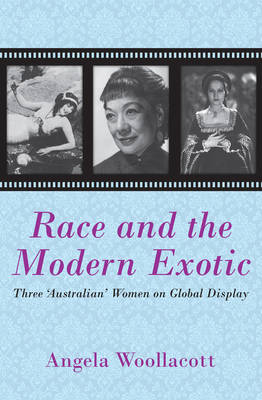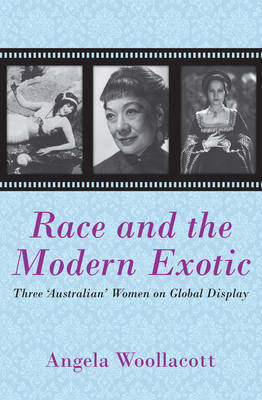
- Retrait gratuit dans votre magasin Club
- 7.000.000 titres dans notre catalogue
- Payer en toute sécurité
- Toujours un magasin près de chez vous
- Retrait gratuit dans votre magasin Club
- 7.000.0000 titres dans notre catalogue
- Payer en toute sécurité
- Toujours un magasin près de chez vous
23,95 €
+ 47 points
Description
Annette Kellerman, Rose Quong and Merle Oberon were internationally successful 'Australian' performers of the first half of the twentieth century. Kellerman was a swimmer, diver, lecturer and silent-film star; Quong was an actor, lecturer and writer who forged a career in London and New York; and Oberon was one of the most celebrated film stars of the 1930s and 1940s, first in London and then Hollywood. Race and the Modern Exotic explores the lives of these three women and makes contemprary connections between race, exoticism and gender on the global stage and screen.
Spécifications
Parties prenantes
- Auteur(s) :
- Editeur:
Contenu
- Nombre de pages :
- 200
- Langue:
- Anglais
- Collection :
Caractéristiques
- EAN:
- 9781921867125
- Date de parution :
- 01-10-11
- Format:
- Livre broché
- Format numérique:
- Trade paperback (VS)
- Dimensions :
- 153 mm x 234 mm
- Poids :
- 263 g

Les avis
Nous publions uniquement les avis qui respectent les conditions requises. Consultez nos conditions pour les avis.






